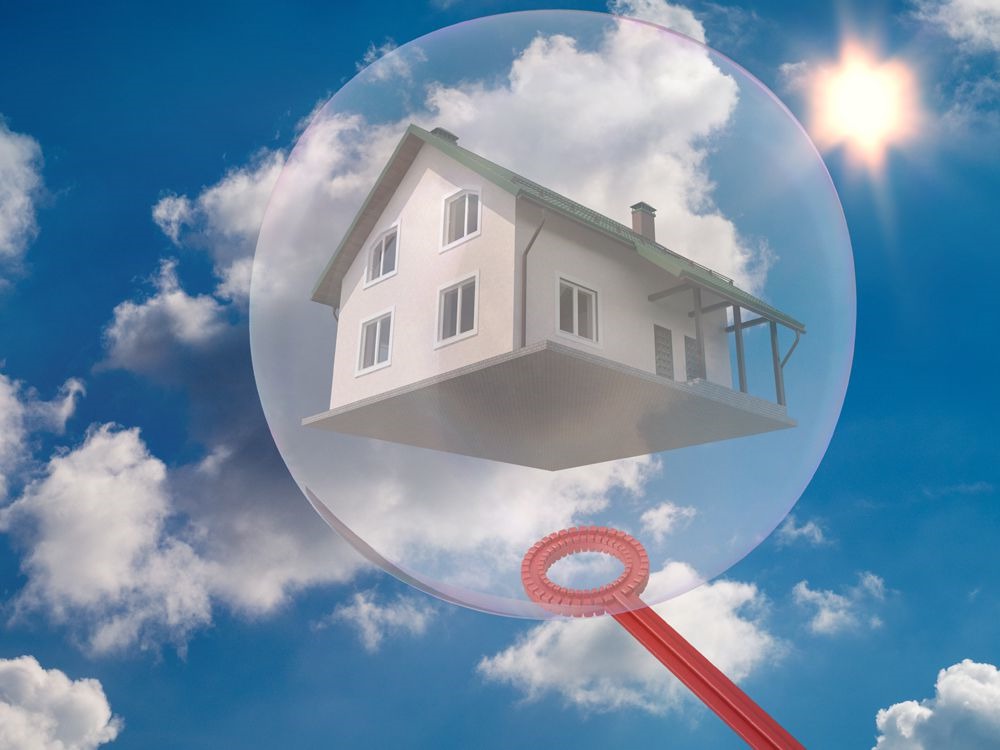

Land prices contributed much more to the price increases than did structures. Because of the large market share of Federal National Mortgage Association (Fannie Mae) and the Federal Home Loan Mortgage Corporation (Freddie Mac) (both of which are government-sponsored enterprises) as well as the Federal Housing Administration, they received a substantial share of government support, even though their mortgages were more conservatively underwritten and actually performed better than those of the private sector. This was shared between the public sector and the private sector. In 2008 alone, the United States government allocated over $900 billion to special loans and rescues related to the U.S. housing market for homeowners who were unable to pay their mortgage debts. Bush and the Chairman of the Federal Reserve Ben Bernanke to announce a limited bailout of the U.S. Concerns about the impact of the collapsing housing and credit markets on the larger U.S. housing bubble has a direct impact not only on home valuations, but mortgage markets, home builders, real estate, home supply retail outlets, Wall Street hedge funds held by large institutional investors, and foreign banks, increasing the risk of a nationwide recession. Secretary of the Treasury, called the bursting housing bubble "the most significant risk to our economy".

homeowners led to a crisis in August 2008 for the subprime, Alt-A, collateralized debt obligation (CDO), mortgage, credit, hedge fund, and foreign bank markets. Increased foreclosure rates in 2006–2007 among U.S.

The credit crisis resulting from the bursting of the housing bubble is an important cause of the Great Recession in the United States. On December 30, 2008, the Case–Shiller home price index reported the largest price drop in its history. Housing prices peaked in early 2006, started to decline in 20, and reached new lows in 2011. It was the impetus for the subprime mortgage crisis. Interestingly, there was a narrower margin in choosing between the importance of time (61%) over money (39%).īeyond monetary figures, these findings illustrate the layers that influence what it means to feel financially healthy today, and how this affects an individual’s overall quality of life.The 2000s United States housing bubble was a real-estate bubble affecting over half of the U.S.

Meanwhile, enjoying experiences (70%) was a better reflection of wealth compared to owning many nice things (30%). In fact, the survey indicates that many Americans place greater importance on non-monetary assets over monetary assets when they think of wealth.įor instance, 72% said having a fulfilling personal life was a better descriptor of wealth than working on a career, which was only chosen by 28% of respondents. When digging deeper, it becomes clear that wealth is not simply a number. Millennials were most likely to feel wealthy, at 57% of respondents, while 40% of boomers felt wealthy, the lowest across generations surveyed. Here’s the breakdown for major cities, illustrating the paradox: This is a considerable divergence from the $2.2 million benchmark they said was needed to be wealthy. Overall, 48% of all respondents said they feel wealthy, and those people had an average net worth of $560,000. Separately, the survey asked whether respondents “feel wealthy” themselves. The average salary is $67,000 in Houston, while in San Francisco it falls at $81,000. Houston, where the cost of living is less than half of San Francisco, respondents said a net worth of $2.1 million is needed to be wealthy. It is home to over 345,000 millionaires, the highest worldwide. In New York, it takes $3.3 million in net worth to reach this target. In Los Angeles and San Diego, it takes $3.5 million to be wealthy, the second-highest across cities surveyed. The vast majority of people in San Francisco say that inflation has had an impact on their finances, and over half say that living in the city impedes their ability to reach their financial goals, citing steep costs of living. This figure dropped from last year, when it stood at $5.4 million. In San Francisco, respondents said they needed $4.7 million in net worth to be wealthy, the highest across all cities surveyed, and more than double the national average. Net Worth to Be "Financially Comfortable"


 0 kommentar(er)
0 kommentar(er)
